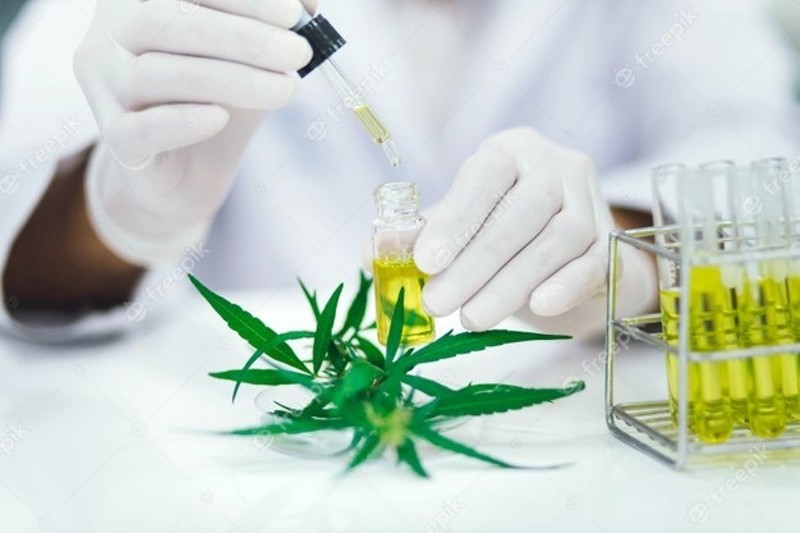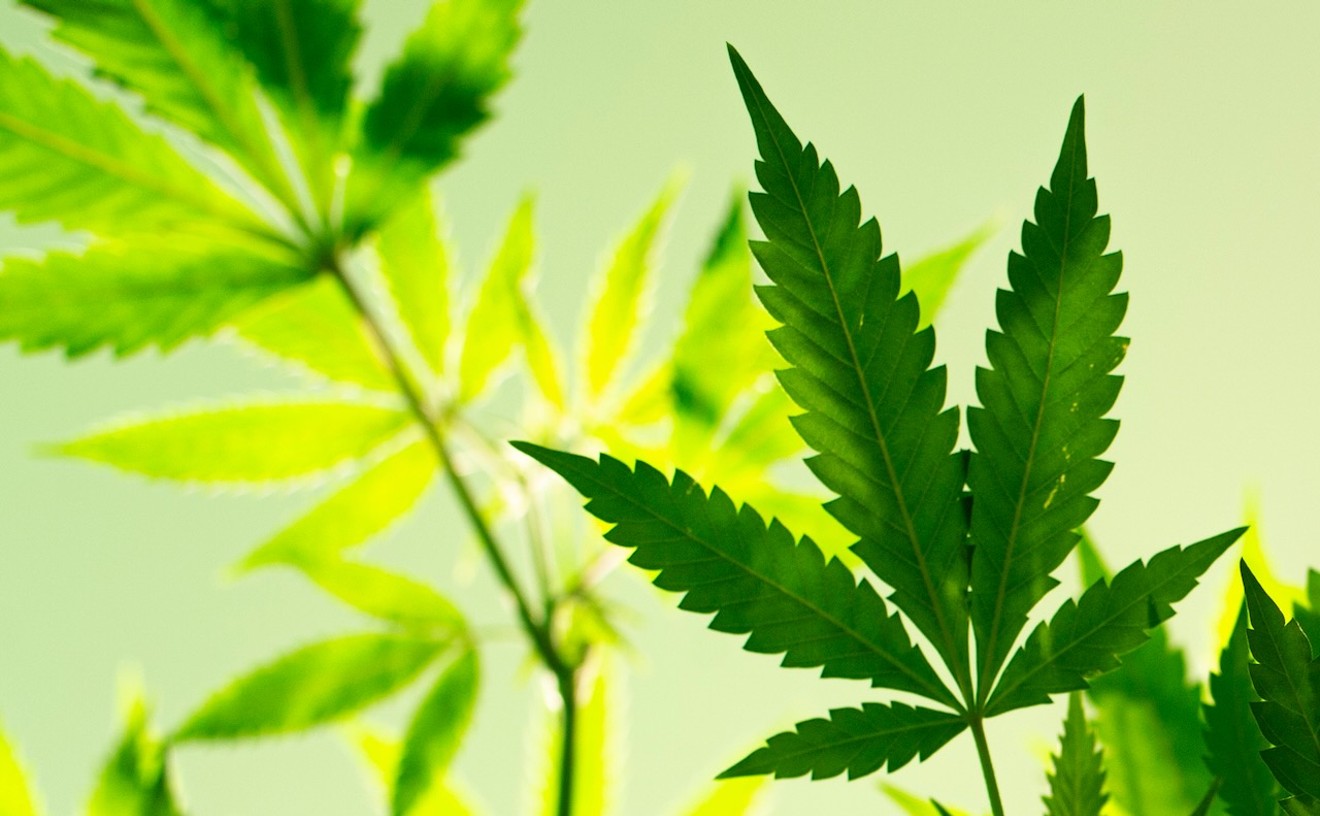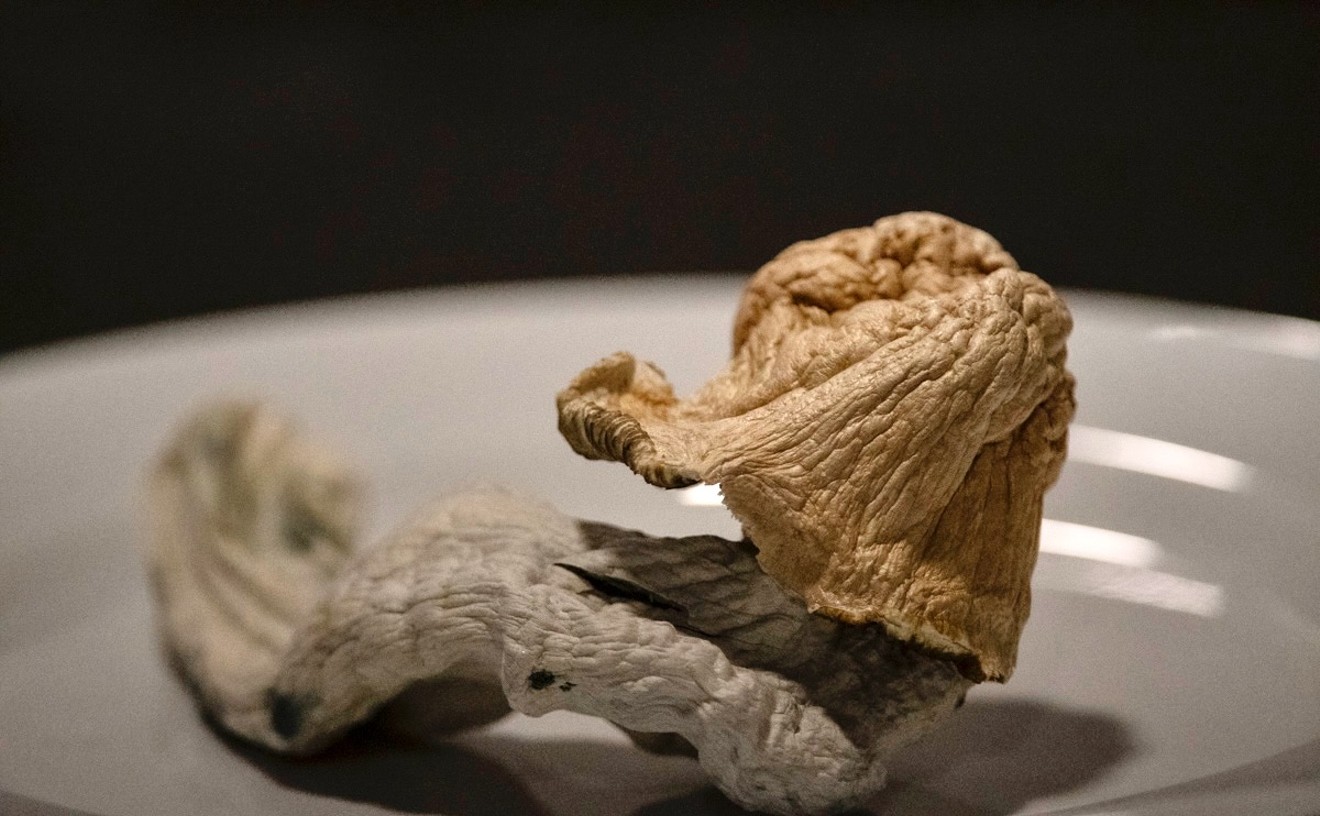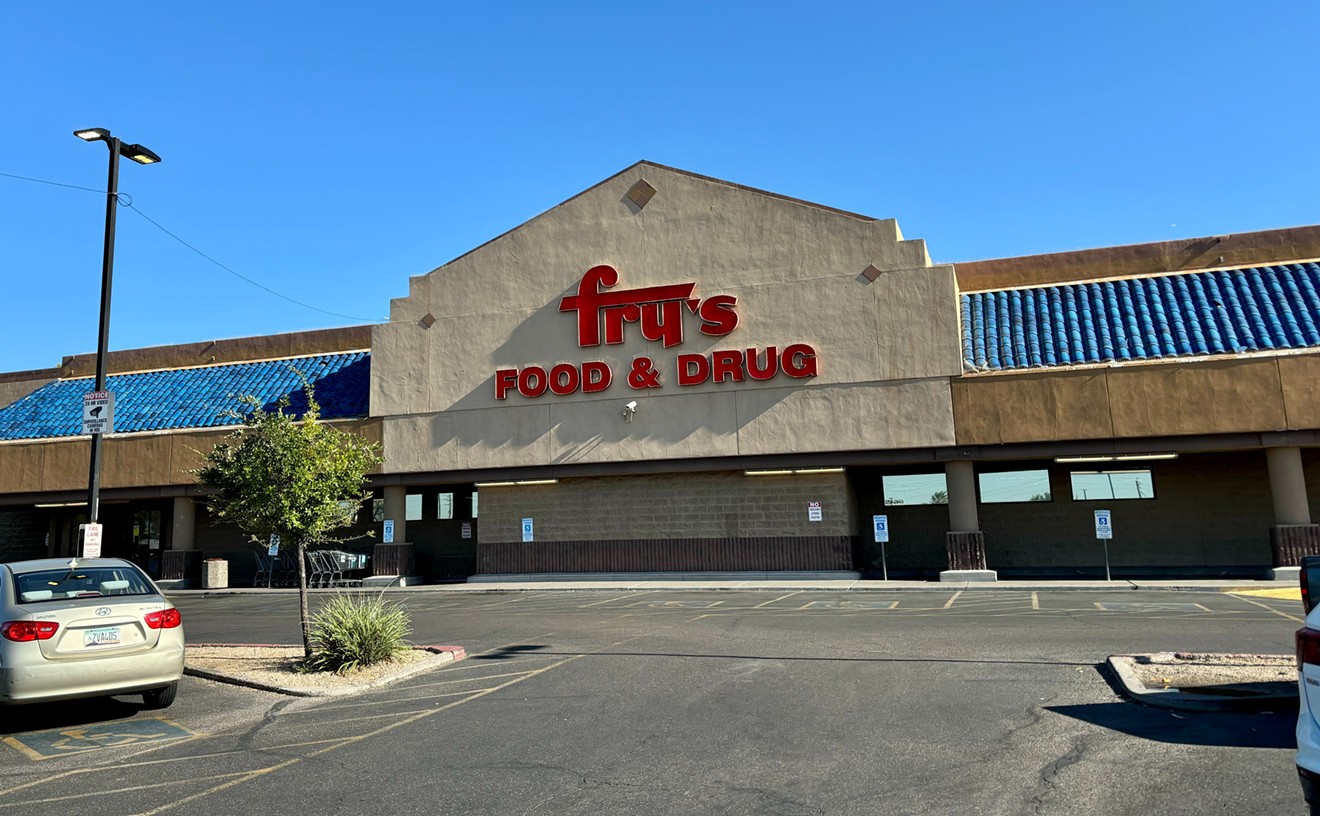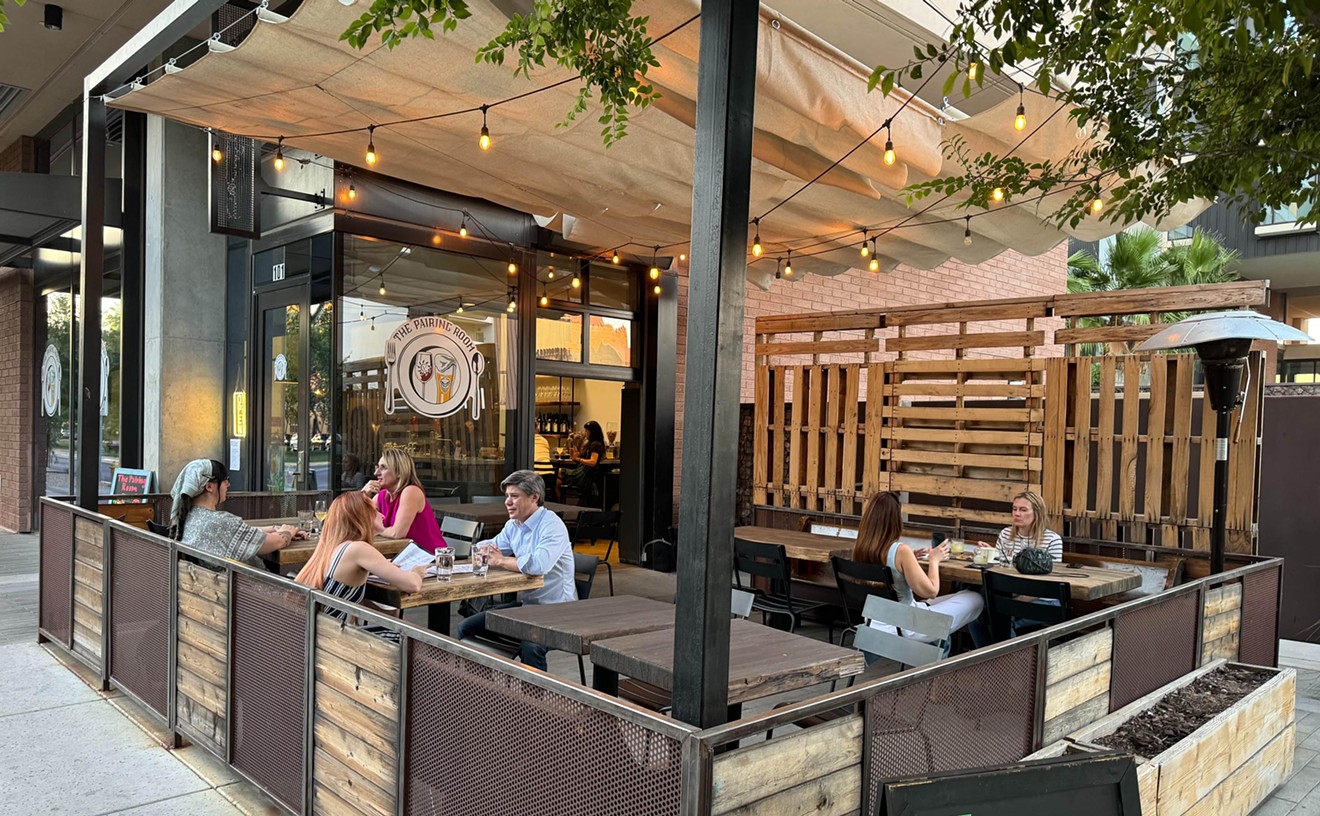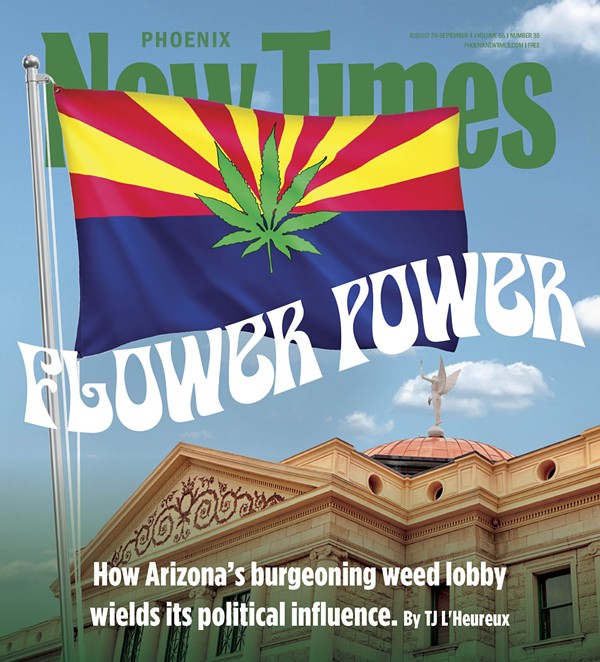Statewide, dispensaries and their growing operations are subject to annual compliance inspections, as well as investigations of complaints.
As of mid-January, the Arizona Department of Health Services had inspected over 90 retail sites, according to state documents released to Phoenix New Times in a formal public records request. Not all records were released.
Many of the inspections revealed problems that ranged from banal violations such as the shape of gummies to more serious health concerns, such as the presence of salmonella in certain products.
Ethan Minkin, an attorney at firm Harris Bricken who advises a handful of marijuana-focused companies about cannabis regulatory issues, said he hasn't personally seen the state levy fines or revoke a license.
"As strange as it may seem, I've never gotten down to that level where the state turns around and imposes sanctions," Minkin said. "In my experience, they've been willing to work with the licensees."
When the department comes across an issue during an inspection, the marijuana establishment creates a plan of correction, he added. There were over 450 correction plans resulting from the inspections by mid-January, according to department reports.
Neko Catanzaro, a PR agent for the company Sol Flower Dispensary, said in an email statement the recall was "due to inconsistencies in third-party lab processes and results," caused by a "rushed and chaotic rollout of the marijuana testing program."
"We have absolutely no reason to believe that any of the products affected by the recall were unsafe. Nonetheless, in cooperation with DHS and out of an abundance of caution we voluntarily recalled the products," she said, adding that safety was Sol Flower's "top priority" and the company "will continue to work with DHS and third-party labs to improve the administration of the testing program."
In November, salmonella and aspergillus were detected in another routine inspection by the department. That instance also resulted in a voluntary recall, according to a news release. Baked Bros, one of the brands that voluntarily recalled its watermelon syrup, did not immediately respond to a request for comment.
In other inspection reports, state regulators found deficiencies at several marijuana establishments for their storage methods. Boxes, in some cases labeled as containing product, were stacked too high, blocking security cameras, according to the department’s inspection records.
Similarly, one Lake Havasu cultivation site, operating as Abedon Saiz LLC/Harvest of Lake Havasu, had plastic bins blocking the security camera's view, regulators discovered during a June compliance inspection. The bins were moved during the time of the inspection, according to the department's report.
"This is a proof point that the educational approach to establishment inspections, in place between the AZDHS and the industry, is working to ensure the industry remains compliant," company spokesperson Rob Kremer said in an email.
Looking for a sour watermelon-shaped edible, like a Sour Patch candy, perhaps?
You shouldn’t be able to find them at Superior Organics in Phoenix anymore.
An annual compliance inspection in June found that the dispensary was selling Big Bud Sativa sour watermelon wedges, and Superior Organics pulled the product in response to the inspection, according to the department report.
Superior Organics and the other companies cited did not respond to requests for comment. Dispensaries can’t sell products that resemble a “human, animal, insect, fruit, toy or cartoon shape,” according to Arizona law.
Sorry, no gummy worms, either.
But the state’s reports may not capture the full picture.
In some cases, there might not be inspection reports for particular marijuana establishments because the program is so new, Tom Herrmann, a public information officer with the Arizona Department of Health Services, said in an email. The system that generated the inspection reports came online only in April, according to Herrmann.
And inspection reports haven’t always been made available to the public, according to Samuel Richard, executive director of the Arizona Dispensaries Association. More transparent inspections were codified in Proposition 207, according to Richard. Some Arizona Department of Health Services inspection data can be reviewed at AZ Care Check.
Not all issues start at the storefront. Some can arise when those with marijuana licenses depend on subcontractors to handle other elements between seed and sale. Those include glitches related to growing or testing, according to Minkin.
“Even though you're subcontracting it out and someone else is running that part of the operation, ultimately it's the responsibility of the licensee,” Minkin said. “When something goes wrong, it’s not the subcontractor the state's going to come after.”
Those in the industry have a choice: correct the mistakes or potentially risk losing their license — a highly sought-after ticket to a multibillion-dollar industry.
Despite issues that have arisen since the legalization of adult-use, the relationship between the health department and dispensaries is mostly amicable, according to Richard.
“It doesn't mean that things are easy,” he added. “But what it does mean is that where and when there needs to be...clarification on a particular rule or how the department is performing it, you know that the regulator is always open and willing to work with us as an industry.”'
Navigating a relatively new, but growing industry doesn’t come without at least a little confusion over the details, from testing to the number of plants necessary to run a cultivation site.
When medical marijuana first came on the market, testing for pesticides and things like salmonella wasn’t required, according to Jeff Mattura, an Arizona-based attorney who represents several dozen dispensaries, license holders, and cultivators. Mattura is the head of the cannabis law team at law firm Barrett Matura.
“There was no testing to really confirm the quality and safety of that product,” he said. “That was a big gap in the industry.”
Eventually, mandatory testing was instituted. Testing requirements were also included in Prop 207. Before adult use entered the Arizona market, dispensaries and their testers were sent scrambling for certifications and supplies to keep up to code as Senate Bill 1494 came into effect, as New Times previously reported. SB 1494 created a new pesticide and contaminant testing system for marijuana establishments in the state, among other things.
Arizona has “two full chapters in the Arizona administrative code that our operators have to abide by, in addition to two full chapters in Title 36 under the Arizona revised statutes,” Richard said. “We're always looking for ways to find a balance between good operating kind of rhythms [and] not compromising at all on public health or safety.”
As with testing requirements, the department periodically updates regulations, as well as instituting changes coming from the legislature, such as SB 1494.
“When you have a grow operation...you have to have at least one marijuana plant being cultivated at all times. And if you don’t, the state doesn’t like that,” Minkin said. “I couldn’t find it anywhere in the regulations, believe it or not.”
Because federal law still classifies marijuana as a Schedule 1 drug, states are left to regulate the industry, meaning laws vary across the United States where pot has been legalized.
“Unlike California or some other states that have really an encyclopedia of regulations, in Arizona the regulations are not that thick,” Mattura said.
In California, the state established the Department of Cannabis Control by merging three state cannabis programs: the Bureau of Cannabis Control in the Department of Consumer Affairs, the Manufactured Cannabis Safety Branch in the Department of Public Health, and the CalCannabis Cultivation Licensing in the Department of Food and Agriculture.
Arizona hasn’t created or consolidated a central regulating agency as California has. The Department of Health Services has taken the lead with such roles as licensing. But the Department of Health Services and Weights and Measures in the Arizona Department of Agriculture, as well as some local jurisdictions, regulate marijuana in this state, according to Richard. But as in Arizona, California regulators also conduct announced and unannounced spot inspections.
Lack of regulations can be both good and bad, according to Mattura. While it gives operators and the department increased flexibility, it also means that some things, such as certain cultivation rules, go uncovered, Minkin pointed out.
Some like Mattura look to other regulated substances — like alcohol and tobacco — to predict the “types of regulations, types of oversight, whether it's taxing issues or legal issues,” Mattura said. “Just as there has been a real change in how tobacco is regulated and labeled...we kind of see that coming with marijuana.”
“This is a part of the growing pains,” concluded Minkin.

